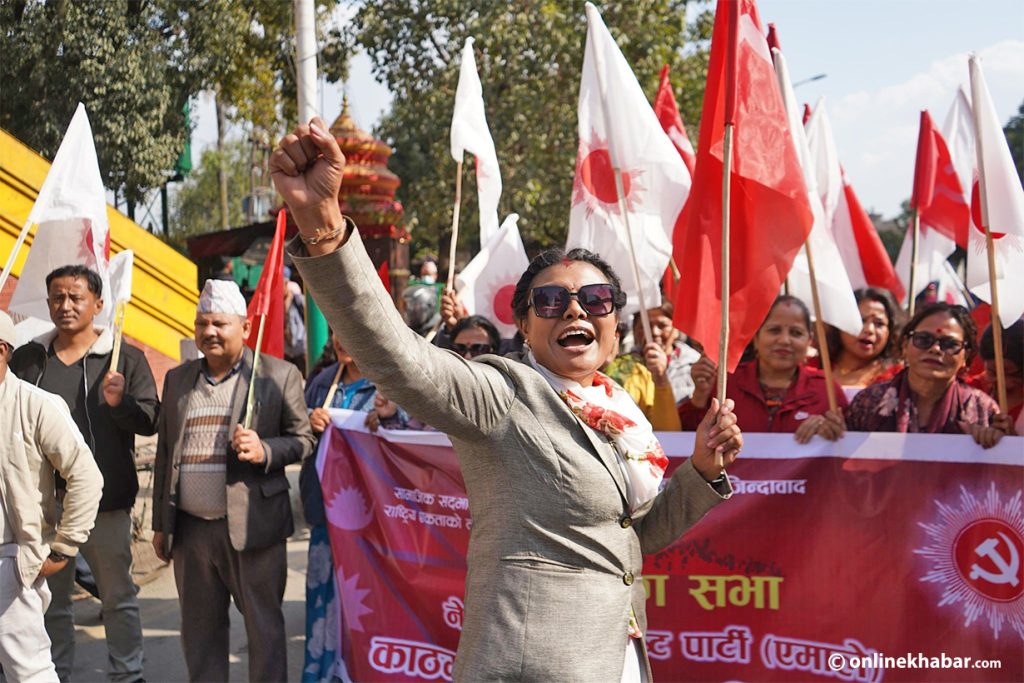
Quite recently, the world celebrated 16 days of Activism against Gender-based Violence. The global campaign commenced on November 25 (the International Day for the Elimination of Violence against Women) and concluded on December 10 (Human Rights Day). The much-needed activism was organised even in Nepal to create public awareness against the growing incidences of violence against women including domestic violence.
But, ironically, Nepali society witnessed something really gruesome amidst that celebration.
While the campaign was running, a 38-year-old man was arrested for killing his wife. The man had made use of a sharp weapon to chop off the head of his wife. He was found walking around his hometown in the Surkhet district, carrying his wife’s head in a plastic bag. He apparently was headed to the police station to surrender for the heinous crime he had committed out of anger.
Prior to that unimaginable incident, the couple were reported to have been involved in frequent fights over the money he had sent to her from abroad over the years. Initial investigations conducted by the police show that the man would also question his wife’s intention and doubt her for being on Facebook for a long time.
Not just this case, even after the end of the international campaign, we got to hear about similar instances of extreme forms of domestic violence. As per media reports, a man in Dhanusha murdered his wife using an axe. The man’s grudge was that his wife did not do any work for the past some months. This triggered fights and subsequently led to that horrific incident.
These cases are just the tip of the iceberg as domestic violence is rampant in Nepal, and it calls all stakeholders to come united for concerted efforts to address the issue.
The volume of violence

The Domestic Violence Act, 2009, defines domestic violence as any form of physical, mental, sexual and economic harm perpetrated by a person to another person with whom s/he has a family relationship. This form of violence also includes any acts of reprimand or emotional harm.
According to the Nepal Police Crime Investigation Division, in the fiscal year 2021/22, a total of 17,000 domestic violence cases were filed with the police. Likewise, in the fiscal year 2020/21, altogether 14,232 cases of domestic violence were reported while there were 11,738 incidences in the fiscal year 2019/20.
These figures speak volumes about the worsening scenario of domestic violence in the country. As the violence takes place within the four walls of a house, many cases go unreported. The perpetrators are mostly husbands and close acquaintances.
According to the Women’s Rehabilitation Centre (WOREC) Nepal, among the different forms of gender-based violence, domestic violence accounts for the highest percentage. The organisation in its annual factsheet for FY 2021/22 states that 65 per cent of women have experienced one form of domestic violence or another.
Despite the various efforts being made by the government, NGOs and INGOs to raise voices against the problem and other gender-based ferocities, the number has not been going down. There are various factors behind it. One of the key factors is patriarchy, which is deeply rooted in our society. The patriarchal thoughts have always portrayed men to be stronger than and superior to women. So, many times, a woman is treated like someone who has to bear all kinds of emotions that her husband or acquaintances show to her.
Need of the hour

In Nepal, the Domestic Violence (Offence and Punishment) Act, 2009, was formulated to control domestic violence. The act states no one shall commit, aid or abet or incite the commission of the act of domestic violence.
The provision of penalty in the act is that a person who commits an act of domestic violence shall be punished with a fine of Rs 3,000 up to Rs 25,000 or six months imprisonment or both. The penalty is found to be very weak. Therefore, there should be stricter laws. The saying ‘justice delayed is justice denied’ is quite relevant in our context. The legal system and the concerned stakeholders should try their best to ensure that the perpetrators are brought to justice as soon as possible.
Even with campaigns and programmes being run by different stakeholders, there still exists a lack of awareness at the community level itself. In such a situation, strengthening formal and informal education systems can play a supportive role in fighting domestic violence.
Political parties should take the issue seriously and step up measures to tackle it. Likewise, society also needs to play an important role in controlling violence by boycotting the perpetrators so that other individuals will not be involved in this kind of crime.
Policymakers now must shift their focus towards designing such plans and policies that are effective, target-oriented and ones which are capable of finding a solution to the core issue. They need to lay much focus on the prevention of this form of crime. They should also review and identify lapses in the existing laws, policies and working styles if any, in order to deal with this problem in a more effective manner.
In regards to ensuring good governance, access to data can help the citizens be better informed about ongoing situations. In the case of domestic violence, they get to know about its rising state and pile pressure on the responsible authorities to tackle the problem.
They can demand greater accountability, responsiveness and effectiveness on the part of the public administration as a whole. The authorities should also take the distressing scenario as a wake-up call and come up with more concrete action plans. They must adopt a zero-tolerance policy on domestic violence and act accordingly.
























